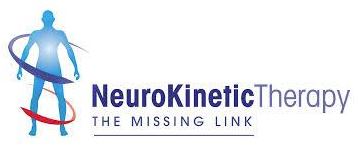What is Neurokinetic Therapy?
Neurokinetic Therapy (NKT) is a highly specialist method of providing rehabilitation to patients with a variety of different conditions.
NKT involves the completion of a thorough examination of the entire body by employing a system of precise muscle tests, which can then be interpreted by certified therapists to identify the presence of any muscle imbalances and dysfunctions that may contribute to potential issues.
Specific exercises may then be provided to address any imbalances or dysfunctions, which will allow optimisation of bodily movements and return to functional activity.
How did it originate?
NKT is a method of treatment that was originally developed in the 1970’s. The principles were conceived after therapists became aware that a number of conditions were able to be successfully treated, only for them to return again at a later date.
After years of studying, therapists then began to develop the theory that localised problems may be caused by dysfunction or imbalances that are present in alternative locations in the body, and failure to address these areas will result in an inability to completely eradicate symptoms in the long term.
NKT has grown in popularity since its inception, becoming a method of treatment that is now used all over the world, with patients reporting highly positive results from a multitude of different conditions.
However, therapists that practice the NKT approach remain outweighed by their non-trained peers due to the discipline remaining highly complex and specialised in nature.

How does it work
NKT is based upon the Motor Control Theory. The Motor Control Centre is an area of the brain where all movement patterns are coordinated, and is responsible for generating specific movements by activating the appropriate muscles in the correct sequence to complete a task.
It is believed that injury in a certain area of the body can result in dysfunctional movement patterns that may remain for a long period of time. To address these deficiencies, the brain must be re-educated in a specific manner by adopting individually tailored exercises that will allow the normalisation of movement and provide resolution of any symptoms.
Treatment may be achieved with a combination of hands-on techniques and a specifically designed exercise programme, with the aim of activating weak and inhibited muscles and releasing overactive structures, in order to allow normal movement to occur which will reduce symptoms.
Who may benefit from NKT?
Neurokinetic therapy can be used for a wide range of conditions, including:
- Postural issues
- Low back pain
- Muscle asymmetry
- Neck pain
- Hip/groin pain
- Jaw problems
- Sciatica
- Knee pain
- Ankle sprains
- Tennis or golfers elbow
- Carpal tunnel syndrome
- Shoulder pain
- Sacroiliac joint pain
Are there any examples?
A simple example of the use of NKT may be as follows:
A patient may have suffered a neck injury and is experiencing symptoms of pain on an intermittent basis for a prolonged period of time. Symptoms may be improved by performing stretches, massage and using heat therapy, however pain seems to return upon suspension of these forms of treatment.
In this instance, a NKT trained therapist will perform a thorough examination to determine whether the problematic area (eg the superficial neck muscles) is a result of over-activity due to weaknesses in alternative muscle groups (eg deep core muscles or other surrounding musculature).
If it is determined that this is the case, hands-on treatment methods may be used to reduce the symptoms of pain, while specific exercises will be adopted to strengthen the weakened muscles and restore any imbalances.
Addressing the underlying causes of issues in this manner will then theoretically allow long term resolution of symptoms and prevent any problems from returning in the future.
If you are intested in NKT with Physio.co.uk please call 0330 088 7800. Alternatively, book an appointment online.
 0330 088 7800
0330 088 7800


































